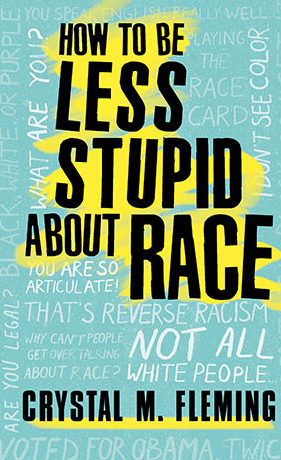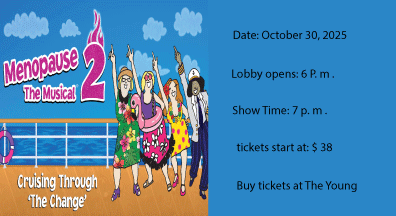Ignorance is not bliss
Lecture educates students, faculty and community on how to be less stupid about race and racism

March 18, 2019
No one is immune to racial ignorance.
That is just one hard truth that Dr. Crystal Fleming shared in her presentation on her book “How to Be Less Stupid About Race” given to students, faculty and community members Monday March 4 in Young Auditorium.
Fleming’s lecture kicked off the first presentation in the College of Letters and Sciences Contemporary Issues Lecture Series. Visiting The University of Wisconsin-Whitewater marked Fleming’s 13th event for her book tour, the 8th state she’s stopped at and her first time ever in Wisconsin.
Fleming is Associate Professor of Sociology and Africana Studies and Associate Faculty in the Department of Women’s, Gender & Sexuality Studies at State University of New York at Stony Brook. She is an author, cultural critic and academic who has committed her work to empowering people with the conceptual tools needed to learn, understand, confront and challenge white supremacy, racism and intersectional oppression.
“Many people go their entire lives without doing what we’re going to do together here tonight which is a real serious, at times, undoubtedly uncomfortable discussion about race and racism,” said Fleming at the opening of her lecture.
Fleming’s journey with race studies began in college at Wellesley College in Massachusetts where she started as a biology major studying biochemistry and molecular pharmacology. In her first years at college, Fleming took an introduction to sociology course that opened her eyes and changed the course of her life.
“What we learned in that class is that even in your experience, maybe you haven’t had what you think is an overt experience with racism. Like me, I didn’t grow up feeling like I had overtly experienced racism. Even if that’s not your experience, that’s the society that we live in,” said Fleming. “Playing by the rules is not enough when the odds are stacked up against you. That class taught me that because problems like racism and class oppression are systemic, we have to work together to change our society and we can. We can organize and work through collective action to improve issues of inequality.”
Prior to Fleming’s lecture, the College of Letters and Sciences hosted a small dinner for faculty and students to get to know Fleming. Many students shared their intrigue and anticipation in hearing what Fleming had to say, including students Kaylee Gramly and Kathleen Martin who have studied race in the past and are both taking a course on race and ethnicity.
“Something that I’ve noticed as a sociology student studying race is that when people are learning about race, they’re often turned off right away just at the subject matter. That leads to perpetuating the pattern of ignorance surrounding things like race and ethnicity,” said Gramly. “So I think cutting to the chase and going right at the issue like the title of Dr. Fleming’s book suggests is going to be really interesting to see what she has to say.”
“I’m a super focal feminist. I’m huge into activism and I want to continue broadening my personal knowledge of different groups so that I can represent people they way they should be represented. In my own speech and talking about these issues, I want to be more educated and learn as much as I can,” said Martin.
Throughout her lecture, Fleming shared multiple myths regarding racism, white supremacy and oppression as well as the reality of these topics. the key point of her lecture emphasized that living in a racist society socializes all of us to absorb racial ignorance.
“One of the largest most powerful sources of racial ignorance in our society is hypersegregation. For most of this country’s history, segregation has been intentionally enforced not by people of color, not by Native Americans, not by African Americans, not by Latinx Americans, not by Asian American but very certainly by white Americans,” said Fleming. “White imposed segregation has meant that tens of millions of white Americans grow up in our society without meaningful relationships with people of color, without ever studying the history, sociology and politics of racism, and without knowing what issues of race feel like from the perspectives of people of color.”
Fleming also addressed the current visibility of race and racism at UW-W and her surprise when she heard about the Black History Month celebration on campus.
“We’ve just had a very interesting Black History Month, have we not? I had the opportunity to have dinner with some students, faculty and administrators this evening and I learned something interesting. I was told that this campus is celebrating its 150th anniversary. Congratulations, 150 years, that’s a big deal,” said Fleming. “But I also learned, I was told, that for the first time in 150 years of this university’s history it took until the year 2019 for this campus to celebrate Black History Month. We’ve had a very interesting Black History Month.”
By the end of her lecture, Fleming emphasized that the most important people to point out when it comes racial ignorance is ourselves.
“Playing by the rules is not enough when the odds are stacked up against you. That intro class back in college taught me that because problems like racism and class oppression are systemic, we have to work together to change our society and we can. We can organize, and work through collective action to improve issues of inequality,” Fleming said.












